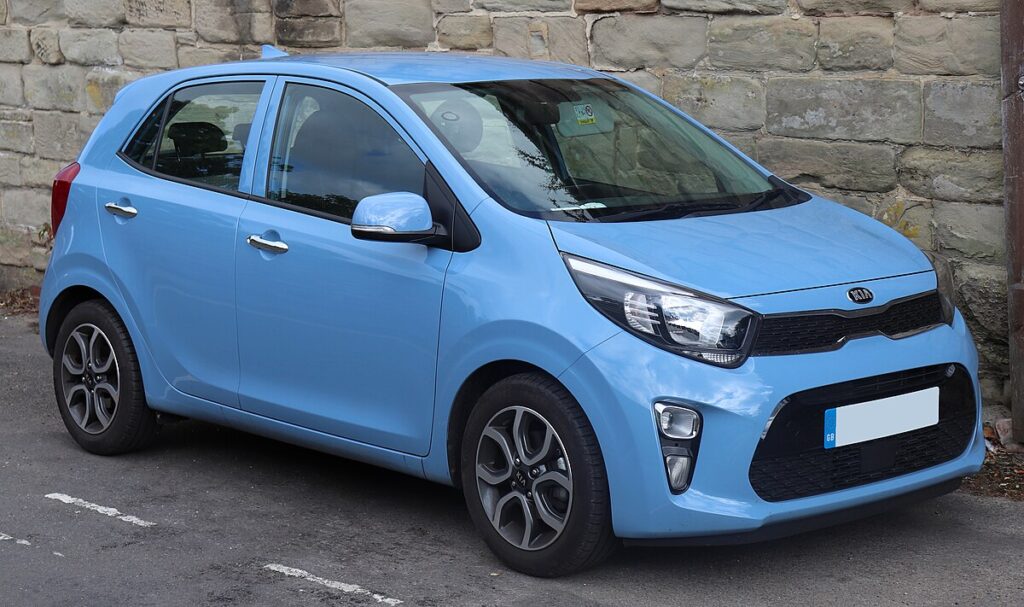
Kia Picanto Key Battery Replacement: The Complete, Stress-Free Owner’s Guide

Replacing the key battery in a Kia Picanto shouldn’t feel like we’re cracking open a safe. Yet, we all know the feeling—pressing the unlock button repeatedly like it owes us money, hoping the doors magically respond. When they don’t, it’s usually a tiny CR-series battery screaming for retirement.
In this guide, we break things down with the simplicity of a Sunday afternoon DIY project. We’ll walk through every detail: the right battery type, steps for opening the fob, troubleshooting after replacement, and how to prevent future failures. Think of it as the guide we wished existed the first time our Picanto key went silent on us.
- Understanding the Kia Picanto Key Fob System
- Why the Key Battery Fails in the First Place
- Signs Your Kia Picanto Key Battery Is Dying
- Exact Battery Types for Kia Picanto Key Fobs
- Tools You'll Need for This DIY Task
- How to Replace the Kia Picanto Flip Key Battery
- Replacing the Kia Picanto Smart Key Battery
- What to Do If the Key Still Doesn’t Work After Battery Replacement
- How to Avoid Common Mistakes During Replacement
- How Long Does a Kia Picanto Key Battery Last?
- How Much Does a Replacement Battery Cost?
- Do You Need to Reprogram the Key After Battery Replacement?
- How to Extend Your Kia Picanto Key Battery Lifespan
- Environmental Tips: How to Dispose of Old Batteries Safely
- When Should You Replace the Whole Key Fob?
- Final Thoughts
- FAQs
Understanding the Kia Picanto Key Fob System
Before diving in with screwdrivers and optimism, we need to know what we’re dealing with. Most Kia Picanto generations (2004–2024) use one of two key types:
1. Folding Remote Key (Flip Key)
The most common version, featuring a retractable metal blade and three buttons.
A fob without a metal key blade exposed—used mainly on newer trims with keyless entry/start.
Each uses a small lithium coin cell battery, and both are easy to replace with basic tools.
Why the Key Battery Fails in the First Place
Key fob batteries are tiny workhorses, yet eventually every one of them runs out of steam. Here’s why:
- Daily use drains the circuit board faster than we think.
- Extreme temperatures (hello, heatwave dashboards) shorten lifespan.
- ACC/ON button presses when fob is in someone’s pocket can drain batteries quietly.
- Age—any battery over 18 months is already living on borrowed time.
Signs Your Kia Picanto Key Battery Is Dying
A failing key battery whispers before it yells. Watch for:
- Slower response when locking/unlocking
- Having to stand embarrassingly close to the car
- Intermittent button function
- Dashboard message: “Key Battery Low” (smart key models)
- Total silence from the fob
If you’re experiencing two or more, it’s time to give your little fob some love.
Exact Battery Types for Kia Picanto Key Fobs
Different key styles use different batteries, so here’s the quick breakdown:
Folding/Flip Key (Most Models):
- Battery: CR2032 lithium coin cell
- Voltage: 3V
- Lifespan: 1–2 years
Smart Key (Keyless Entry/Start):
- Battery: CR2032 or CR2025 depending on model year
- Voltage: 3V
- Lifespan: 1 year
We always choose a reputable battery brand—Panasonic, Energizer, Maxell, or Duracell. Cheap batteries have the lifespan of a goldfish memory.
Tools You'll Need for This DIY Task
No toolbox drama here. You’ll need:
- A small flat-head screwdriver
- A new CR2032/CR2025 battery
- A clean cloth or tissue
- Optional: plastic trim pry tool (safe for avoiding scratches)
How to Replace the Kia Picanto Flip Key Battery
Now we’re getting to the good stuff—the hands-on part. Let’s break it into simple steps.
Step 1: Pop Open the Key Blade
Press the silver release button. The metal key blade flips open like a switchblade in a movie (minus the drama).
You may be interested in reading Volkswagen T-Cross Boot Size: The Complete, No-Nonsense Guide for Real-World Use
Volkswagen T-Cross Boot Size: The Complete, No-Nonsense Guide for Real-World UseStep 2: Identify the Battery Housing Seam
Turn the fob over. You’ll see a thin seam running around the edges. This is where we gently pry it apart.
Step 3: Use a Flat Screwdriver to Open the Case
- Insert screwdriver into the seam
- Twist gently—don’t Hulk it
- The cover will lift with a soft click
We always recommend twisting slowly to avoid damaging the plastic.
Step 4: Remove the Old Battery
- Use the screwdriver to lift the battery out
- Avoid touching circuit board components
- Discard the battery responsibly—Lithium ≠ regular trash
Step 5: Insert the New Battery
- Positive side (+ side) faces up
- Seat the battery flat and secure
- Avoid touching battery surface with bare fingers—oil reduces contact efficiency
Step 6: Close the Fob Shell
- Align both halves
- Press firmly along all edges until you hear snaps
- Fold the blade back in
Congratulations—your Picanto key probably feels brand-new already.
Replacing the Kia Picanto Smart Key Battery
Smart keys feel futuristic until the battery dies. When they do, here’s how to bring them back to life:
Step 1: Remove the Emergency Key
- Slide the release switch
- Pull out the hidden metal emergency key
This exposes the small slot used for disassembly.
Step 2: Open the Smart Key Housing
Insert a screwdriver into the slot and twist gently. The shell separates into two clean halves.
Step 3: Remove the Dead Battery
- Push from the side using your pry tool
- Slide out the CR2032 or CR2025 battery
- Again, keep oils and fingerprints away
Step 4: Install the New Battery
- Positive side up
- Ensure it clicks firmly into the holder
Step 5: Reassemble the Fob
Press both halves together until they seal. Insert the emergency key, and you’re back in business.
What to Do If the Key Still Doesn’t Work After Battery Replacement
If your Picanto key still feels “moody,” here’s what we try:
1. Re-sync the key (varies by model)
- Lock/unlock manually using the key blade
- Press “Lock” and “Unlock” together for 3–5 seconds
2. Check if the battery is seated incorrectly
3. Try a different brand battery
4. Inspect for internal corrosion or water entry
Smart keys especially hate rain, puddles, and washing machines.
How to Avoid Common Mistakes During Replacement
Here are the rookie errors we’ve all made at least once:
- Forcing the fob open until the case cracks
- Installing the battery upside down
- Touching the battery contacts with sweaty fingers
- Losing the emergency key
- Forgetting to buy the right battery type
- Using ultra-cheap bargain-bin batteries
We’ve learned these lessons so you don’t have to.
How Long Does a Kia Picanto Key Battery Last?
On average:
- Flip key: 18–24 months
- Smart key: 12–18 months
Smart keys drain batteries faster because they constantly communicate with the vehicle.
How Much Does a Replacement Battery Cost?
Expect:
You may be interested in reading Volkswagen T-Cross Boot Size: The Complete, No-Nonsense Guide for Real-World Use
Volkswagen T-Cross Boot Size: The Complete, No-Nonsense Guide for Real-World Use Volkswagen T-Cross Tyre Pressure Guide (Official PSI for All Wheel Sizes)
Volkswagen T-Cross Tyre Pressure Guide (Official PSI for All Wheel Sizes)- £1–£6 per CR2032 battery
- Up to £10 for premium brands
Dealerships may charge £20–£40 for the service, but DIY takes under five minutes and saves you that extra expense.
Do You Need to Reprogram the Key After Battery Replacement?
Short answer: No.
Long answer: Rarely, unless the fob’s internal memory resets.
Most Picanto keys retain their pairing. If re-syncing is needed, it’s typically a simple button-press sequence—not dealer-level reprogramming.
How to Extend Your Kia Picanto Key Battery Lifespan
We swear by these simple habits:
- Don’t store the fob near electronics (wireless interference).
- Avoid extreme heat—car dashboards can reach 65°C.
- Keep the fob clean and dry.
- Don’t carry the fob in a pocket with coins or keys (button presses drain it).
- Use high-quality lithium batteries.
Environmental Tips: How to Dispose of Old Batteries Safely
Lithium coin cells should never go in household waste.
- Drop them at recycling points
- Many supermarkets have battery bins
- Kia dealerships accept used batteries for disposal
One small battery makes a big environmental difference.
When Should You Replace the Whole Key Fob?
Battery issues are usually isolated, but replace the whole fob if:
- Fob casing is cracked
- Buttons are torn
- It was submerged in water
- Circuit board is corroded
- It no longer pairs even with good batteries
Dealers can supply replacements, but locksmiths often offer more affordable options.
Final Thoughts
Replacing the key battery in a Kia Picanto isn’t just a maintenance task—it’s a tiny act of empowerment. We take a part of car ownership that seems locked behind dealership counters and put it back in our own hands. With the right steps, the right battery, and a little patience, your Picanto key fob will work like new again. And next time the fob acts sluggish, you’ll know exactly what to do—no panic, no fuss, no tow truck.
FAQs
1. What battery does a Kia Picanto key use?
Most Picanto keys use a CR2032, while some smart keys use a CR2025.
2. How long does key battery replacement take?
Usually 3–5 minutes, even for beginners.
3. Do I need to reprogram the fob afterward?
No, most keys re-sync automatically.
4. Can I use a cheaper, unbranded coin battery?
You can, but they typically die much sooner.
5. Why does my key still not work after replacing the battery?
Possible reasons include incorrect battery orientation, internal damage, or the need for a quick re-sync.
You may be interested in reading Volkswagen T-Cross Boot Size: The Complete, No-Nonsense Guide for Real-World Use
Volkswagen T-Cross Boot Size: The Complete, No-Nonsense Guide for Real-World Use Volkswagen T-Cross Tyre Pressure Guide (Official PSI for All Wheel Sizes)
Volkswagen T-Cross Tyre Pressure Guide (Official PSI for All Wheel Sizes) Volkswagen T-Cross Dimensions & Size Guide (Full Expert Breakdown)
Volkswagen T-Cross Dimensions & Size Guide (Full Expert Breakdown)If you want to know other articles similar to Kia Picanto Key Battery Replacement: The Complete, Stress-Free Owner’s Guide you can visit the category Service and Parts.
Leave a Reply





More content of your interest